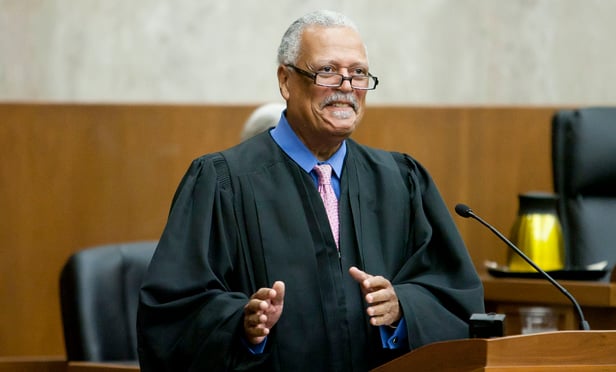Updated at 7:03 p.m.
Democratic members of Congress have standing to sue President Donald Trump for allegedly violating the foreign emoluments clause, a federal judge in Washington, D.C., ruled Friday afternoon, in a court win that clears a significant hurdle for the lawmakers.

 U.S. District Judge Emmet Sullivan of the District of Columbia. Photo Credit: Diego M. Radzinschi/ALM
U.S. District Judge Emmet Sullivan of the District of Columbia. Photo Credit: Diego M. Radzinschi/ALM








